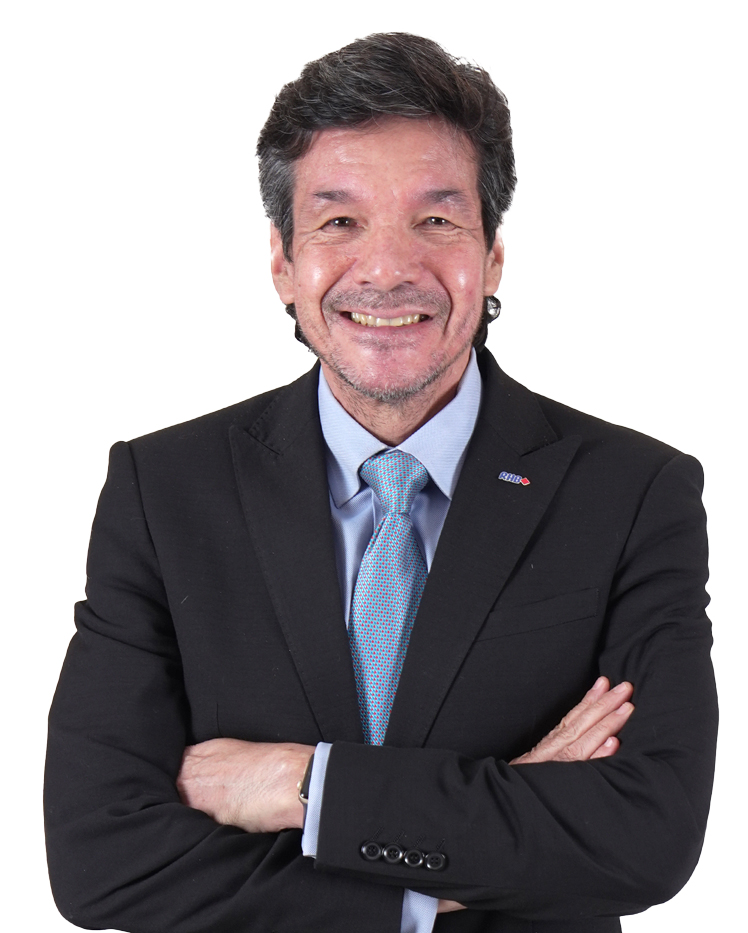High Ethical Financial Leadership
What it takes to instil public trust in the financial system.
What it takes to instil public trust in the financial system.
 By the Banking Insight Reporting Team
By the Banking Insight Reporting Team
In this exclusive interview with Banking Insight, Angus Salim bin Salleh Amran, FCB, Group Chief Sustainability Officer at RHB Bank Bhd and Vice President of the Financial Markets Association of Malaysia, shares his thoughts about the trajectory that has taken him towards the pinnacle of banking and the values that will drive the sector towards sustainable socioeconomic prosperity.
Q: With over three decades in banking and a career that spans treasury, FX, and senior management, you’ve recently transitioned into a new and exciting role at RHB Bank. What is your mandate and priorities as Group Chief Sustainability Officer?
My mandate as the Group Chief Sustainability Officer is to ensure that environmental, social, and governance (ESG) considerations are integrated throughout RHB Banking Group’s (Group’s) business, operations, and value chain, and our relationship managers are equipped with the capacities to guide our customers through their transition pathways towards net zero.

I fulfil a key leadership role to enhance the Group’s ability to drive sustainable growth and deliver greater value for our stakeholders by establishing group sustainability as a centre of excellence in ideation and innovation of products and solutions; adhering to the highest governance standards towards supporting climate resilience and sustainable socioeconomic activities, in alignment with the Group’s sustainability objectives.
Q: Sustainable banking in a region as diverse as ASEAN poses unique challenges as member nations are at different stages of their sustainability journey. How would this impact the assessment of portfolios at regional banks and how should they equip themselves for this?
At RHB, we advocate just and measured transitions. We recognise that banks’ customers across the ASEAN region will be at different stages of ESG maturity, exposing financial institutions to varying levels of physical and transition risks. However, it is unjust to apply uniform sustainability standards as ESG capacities are not equal across the region. It is far more important for all economic actors in ASEAN to act early and in an orderly manner to transition at a measured yet progress manner, taking into account their position on the ESG maturity spectrum. It is collective transition at a consistent pace embedded in business value chains, investors’, consumers’ and regulators’ sustainability preparedness that will be far more impactful towards contributing to socioeconomic resilience. There are no interplanetary boundaries on greenhouse gas emissions, and transition efforts anywhere, no matter how modest, will have a positive impact on climate resilience everywhere.
Q: The Institute was proud to welcome you onboard as a Fellow Chartered Banker (FCB) at our 2024 Conferment. In the year since, has being an FCB shaped your perspective and approach to work and, perhaps, life?
Being conferred an FCB is the pinnacle of my banking career. It was humbling to be awarded the fellowship for all that it represents: professionalism, a commitment to excellence, integrity and ethical conduct, and exemplary leadership within the industry. I am acutely aware of the responsibilities of a banker to instil public trust and confidence in the financial system; being an FCB has inspired me to hold myself up to a higher standard and, through thought leadership, build and foster capacities towards strengthening financial system integrity and sustainability.
Q: Many are of the opinion that the world is entering a phase of significant geopolitical realignment with multiple impact on the financial sector. As Vice President of the Financial Markets Association of Malaysia, how do you see banks preparing for this possibility?
Banks consistently undertake scenario analysis and stress testing to ensure that capital levels remain strong to cater for any financial shocks. Regulators are very proactive in ensuring liquidity remains ample to address imbalances and ensure orderly financial markets. Banks are reinforcing their duty of care to stakeholders by repricing financial risks to manage any excessive financial market volatility arising from geopolitical realignment.
Q: What is your advice to the next generation of bankers coming onboard?
Banking is a career that requires a high level of professionalism, commitment, and integrity to ensure financial system stability, which is essential for societal well-being. Chartered Bankers must embody a duty of care and consistently exercise high ethical financial leadership to support and drive sustainable socioeconomic prosperity.